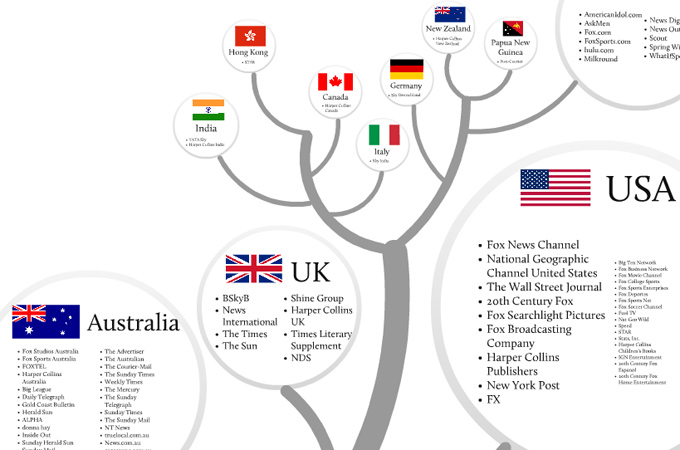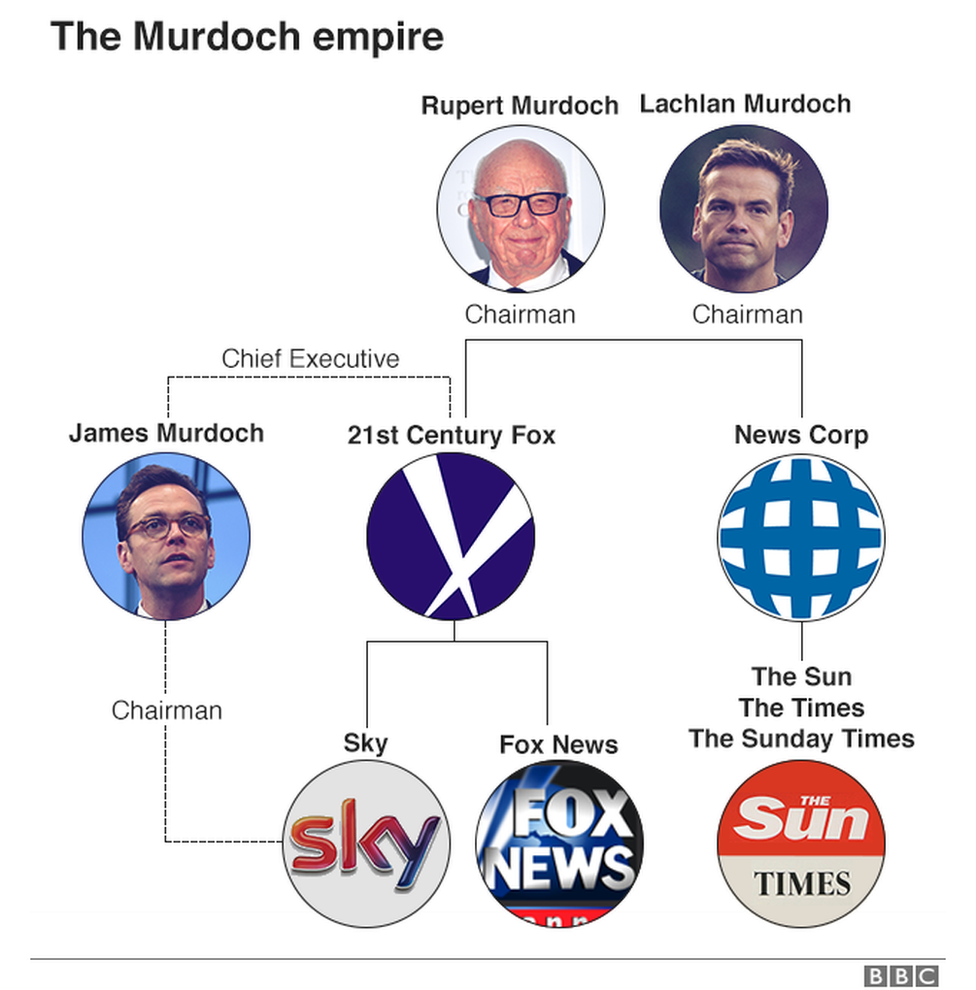- Media Concentration – a process where less businesses control increasing shares of the mass media.
- Conglomerates – a company that owns multiple companies involved in mass media enterprises.
- Globalisation (in terms of media ownership) – when businesses grow large enough to operate on an international or global scale.
- Vertical Integration – when one company owns multiple firms that can complete two or more stages of production.
- Horizontal Integration – when a company increase production at the same stage of production.
- Gatekeepers – someone who controls what is allowed; e.g. CEO.
- Regulation – a rule that is maintained by an authority.
- Deregulation – the reduction or elimination of government power in an industry, usually used to create more competition in an industry.
- Free Market – when governments have little or no control so businesses can produce goods/services based on demand.
- Monopolies – when one business controls the supply in an industry.
- Mergers – when to businesses join to form one in order to achieve higher market control, better productivity and better economies of scale.
David Hesmondhalgh
David Hesmondhalgh is an academic who critically analyses the relationship between media work and the media industry. In his seminal book, The Culture Industries he wrote: “the distinctive organisational form of the cultural industries has considerable implications for the conditions under which symbolic creativity is carried out” – (The Culture Industries, Sage, 2019, p.99). In other words, there must be serious concerns about the extent to which this business-driven, economic agenda is compatible with the quality of working life and of human well-being in the creative industries.
He also goes on to say that young creatives are aiming to be in the media industry for the fame and wealth, he says that they will be disappointed when they start working there as it is not the myth that they got told it would be like when they were young. “its utopian presentation, creative work is now imagined only as a self-actualising pleasure, rather than a potentially arduous or problematic obligation undertaken through material necessity” (2009, p. 417)
Murdoch Media Empiere




Media Regulation
Murdoch went to the UK and wanted magazines, newspapers and television as with all of them you have control and power over the media. He wanted to buy Sky but the government stopped it and made him a shareholder of 39% of Sky. Murdoch later became friends with the prime minister so he could influence them to benefit himself as well as them. For example, Murdoch influenced Tony Blair to not go into the Euro and to keep the Pound; this led to Brexit.
This links to Chomsky and manufacturing consent as they are keeping the power between friends as he states that the media and politics need each other.
